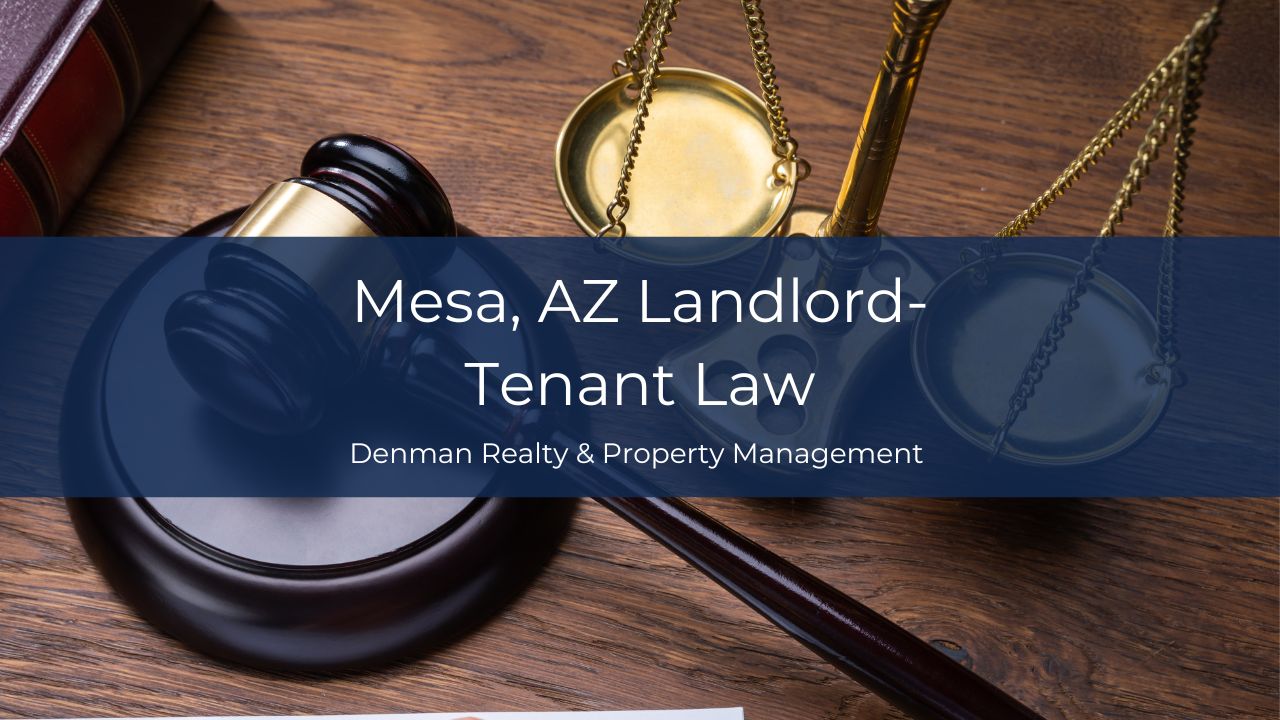Navigating the legal landscape as a landlord in Arizona requires a clear understanding of the Arizona Residential Landlord and Tenant Act. These laws outline the rights and responsibilities of both landlords and tenants, helping to create a fair and transparent relationship.
Whether you are new to rental management or a seasoned Arizona residential landlord, staying informed about these laws is crucial. This article will provide an overview of Arizona's landlord-tenant law.
Required Landlord Disclosures in Arizona
Arizona rental law mandates landlords disclose certain information to tenants at the beginning of the tenancy. These disclosures help ensure that tenants are fully informed about the terms of their rental agreements and the condition of the rental. Below are the key disclosures that landlords in Arizona must provide in accordance with the state landlord and tenant act:
- Nonrefundable Fees - If an owner charges any nonrefundable fees, such as a cleaning fee or an application fee, this must be disclosed in writing to the tenant before the fee is paid.
- Security Deposit - Landlords must disclose the terms under which the security deposit will be held, including the conditions for its return or partial retention.
- Move-in Checklist - Landlords must provide a move-in checklist that documents the condition of the rental dwelling before the tenant takes possession.
- Rights of Domestic Violence Victims - Landlords in Arizona must inform tenants who are victims of domestic violence of their rights under the law.
- Owner or Agent Identity - Landlords must provide tenants with the name and contact information of the landlord or the owner’s agent.

Arizona Tenant Rights and Responsibilities
Tenants in Arizona are entitled to certain rights that protect them from unfair treatment and ensure they have a safe and habitable place to live. Understanding these rights is important for residential landlords, as it helps them avoid legal disputes and maintain a good relationship with their tenants. Per the landlord and tenant act, a renter has a right to:
- A Habitable Home - Tenants are entitled to reside in quality rental housing that is secure, well-maintained, and in good condition. The Arizona residential landlord must ensure the rental home remains in this state by making necessary repairs.
- Privacy - A tenant has the right to privacy in their rental premises. Landlords must provide reasonable written notice before entering the dwelling unit, except in emergencies.
- Protections Against Retaliation - Landlords cannot retaliate against tenants for exercising their legal rights.
Tenant obligations include:
- Paying Rent on Time - A tenant must submit rent payments on time, as outlined in the lease or rental agreement.
- Keeping the Dwelling Clean and Safe - Tenants must keep the rental premises clean and dispose of garbage properly. They are also responsible for preventing and reporting any damage to the premises.
- Complying with the Lease Agreement - A tenant must adhere to all terms outlined in the written rental agreement.
Arizona Landlord Rights and Responsibilities
Just as tenants have rights and responsibilities, landlords in Arizona also have specific rights and obligations that must be upheld. Understanding these can help landlords manage their properties more effectively and avoid legal issues.

Landlords have the right to:
- Collect Rent - Landlords are entitled to receive rent payments from a tenant and can enforce late fees if rent is not paid on time.
- Enter the Rental - Landlords can enter the rental for inspections, repairs, or other legitimate reasons, provided they give the tenant reasonable notice.
- Seek Legal Action - If renters violate the rental agreement, the landlord has the right to seek legal action, including to evict tenants.
Landlord duties in Arizona include:
- Complying with Health and Safety Codes - The rental premises must comply with all applicable health and safety codes by having working plumbing, heating, and electrical systems.
- Making Necessary Repairs - Landlords must handle any necessary repairs in a reasonable manner and timeframe to ensure the rental unit is livable and meets health and safety standards.
- Providing Legal Disclosures - Landlords must provide a tenant with all required disclosures before signing a rental agreement.
An Overview of the Arizona Landlord-Tenant Laws
Below is an overview of some of the most important aspects of Arizona's landlord-tenant laws:
Tenant Privacy and Landlord Entry
Arizona requires landlords to give a tenant at least 48 hours' written notice before entering the rental property, except in emergencies. This helps balance the tenant’s right to privacy with the landlord’s need to access the dwelling for legitimate reasons.
Arizona’s Housing Discrimination Laws
Landlords in Arizona must comply with federal and state Fair Housing laws that prohibit discrimination based on race, color, religion, sex, national origin, familial status, or disability.

Security Deposits
Arizona law limits the amount a landlord can charge for a security deposit to one and a half times the monthly rent. The deposit amount and handling information should be included in the rental agreement Landlords must also return the security deposit within 14 days after the tenant moves out, minus any deductions for damages or unpaid rent.
Renters' Rights to Withhold Rent
Tenants in Arizona have the right to withhold rental payments if the landlord fails to make necessary repairs that affect the health and safety of the tenant. However, tenants must follow specific procedures outlined in state law to do so legally.
Small Claims Lawsuits in Arizona
Landlords can file a small claims lawsuit in Arizona for disputes involving unpaid rent, property damage, or other issues up to a certain monetary limit. Small claims court is often a quicker and less expensive way to resolve disputes.
Bottom Line
Understanding Arizona's landlord-tenant laws is essential for anyone managing rental properties in the state. By familiarizing yourself with these laws, you can better protect your investment and avoid legal disputes.
At Denman Realty & Property Management, we are committed to helping landlords navigate the complexities of property management in Arizona. Contact us today to learn how we can help you manage your rental property effectively and in full compliance with Arizona law.
Disclaimer: Please note that the information provided in this blog is intended for general guidance and should not be considered as a replacement for professional legal advice. It is important to be aware that laws pertaining to property management may change, rendering this information outdated by the time you read it.



